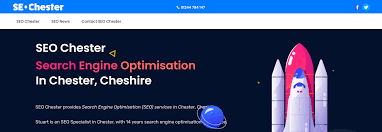Digital Marketing 101: A Beginner’s Guide to Online Success
In today’s digital age, having a strong online presence is crucial for businesses of all sizes. Digital marketing has become an essential tool for reaching and engaging with customers, driving brand awareness, and ultimately growing your business. If you’re new to the world of digital marketing, fear not! This article will provide you with a beginner’s guide to get started.
Understanding Digital Marketing:
Digital marketing encompasses all marketing efforts that utilize electronic devices and the internet. It includes various strategies such as search engine optimization (SEO), social media marketing, content creation, email marketing, pay-per-click (PPC) advertising, and more. The goal is to reach your target audience where they spend most of their time – online.
Identifying Your Target Audience:
Before diving into digital marketing, it’s crucial to identify your target audience. Who are your ideal customers? What are their interests, demographics, and online behaviors? Understanding your audience will help you tailor your digital marketing efforts effectively.
Building a Strong Website:
Your website serves as the foundation of your online presence. Ensure that it is user-friendly, visually appealing, and optimized for search engines. Incorporate relevant keywords throughout your website content to improve search engine rankings and attract organic traffic.
Search Engine Optimization (SEO):
SEO plays a vital role in driving organic traffic to your website. Optimize your website by using relevant keywords in page titles, meta descriptions, headers, and content. Create valuable and informative content that answers users’ queries while incorporating relevant keywords naturally.
Social Media Marketing:
Social media platforms have become powerful tools for businesses to connect with their target audience directly. Identify the platforms where your audience spends their time and create engaging content that resonates with them. Regularly post updates, interact with followers, run targeted ad campaigns, and leverage analytics to measure performance.
Content Creation:
Creating high-quality content is essential for digital marketing success. Publish blog posts, articles, videos, infographics, and other forms of content that provide value to your audience. Establish yourself as an industry expert and build trust with your customers through informative and engaging content.
Email Marketing:
Email marketing allows you to directly communicate with your audience and nurture leads. Build an email list by offering valuable content or incentives in exchange for email addresses. Send personalized and targeted emails to your subscribers, promoting new products, sharing updates, or offering exclusive deals.
Pay-Per-Click (PPC) Advertising:
PPC advertising involves placing ads on search engines or social media platforms and paying only when someone clicks on them. It’s an effective way to drive targeted traffic to your website quickly. Set a budget, define your target audience, select relevant keywords, and create compelling ad copy to maximize results.
Analytics and Measurement:
Tracking the performance of your digital marketing efforts is crucial for ongoing success. Utilize tools like Google Analytics to monitor website traffic, user behavior, conversions, and other key metrics. Analyze the data regularly to identify areas for improvement and optimize your strategies accordingly.
Stay Updated:
Digital marketing is constantly evolving as new technologies emerge and consumer behaviors change. Stay updated with industry trends by reading blogs, attending webinars or conferences, joining online communities, and following industry experts on social media.
Remember that digital marketing is a long-term strategy that requires consistency, experimentation, and adaptation. As you gain experience and knowledge in this field, you can refine your tactics to achieve even greater results.
In conclusion, digital marketing offers endless opportunities for businesses to connect with their target audience in a meaningful way. By understanding the basics outlined in this beginner’s guide – identifying your audience, building a strong online presence through SEO-optimized websites and engaging content – you’ll be well on your way to achieving online success. Embrace the digital world, experiment with different strategies, and watch your business thrive in the online realm.
Demystifying Digital Marketing: Answers to Commonly Asked Questions
- What are the 5 D’s of digital marketing?
- What are the 7 P’s of digital marketing?
- What is the basics of digital marketing?
- What are the 4 P’s of digital marketing?
What are the 5 D’s of digital marketing?
The 5 D’s of digital marketing are a framework that helps businesses understand and implement effective digital marketing strategies. They are:
- Digital Devices: This refers to the various electronic devices that people use to access digital content, such as smartphones, tablets, laptops, and desktop computers. Understanding the different devices your target audience uses is crucial for optimizing your marketing efforts across multiple platforms.
- Digital Platforms: Digital platforms encompass the online channels where businesses can engage with their audience, such as search engines, social media platforms, websites, email marketing platforms, and mobile apps. Identifying the most relevant and effective platforms for your business is essential for reaching and connecting with your target audience.
- Digital Media: Digital media encompasses all forms of online content that businesses can use to promote their products or services. This includes text-based content like articles and blog posts, visual content like images and videos, as well as interactive content like quizzes or games. Creating compelling and engaging digital media is key to capturing your audience’s attention.
- Digital Data: In digital marketing, data plays a crucial role in understanding consumer behavior and measuring the effectiveness of marketing campaigns. Analyzing data allows businesses to gain insights into customer preferences, track website traffic and conversions, monitor social media engagement, and make data-driven decisions to optimize their strategies.
- Digital Technology: Digital technology refers to the tools and technologies used in digital marketing campaigns. This includes website development platforms, analytics tools, customer relationship management (CRM) systems, automation software, and more. Leveraging the right digital technologies can streamline processes, enhance efficiency, and improve overall campaign performance.
By considering these 5 D’s – Devices, Platforms, Media, Data, and Technology – businesses can develop comprehensive digital marketing strategies that effectively reach their target audience while leveraging the power of technology to drive growth and success in the online realm.
What are the 7 P’s of digital marketing?
The 7 P’s of digital marketing are a framework that helps businesses develop and implement effective digital marketing strategies. They are:
- Product: This refers to the goods or services you offer to your target audience. It involves understanding your product’s unique selling points, features, and benefits, and how they align with your customers’ needs and preferences.
- Price: Price refers to the cost associated with your product or service. In digital marketing, it involves determining the pricing strategy that best suits your target market, considering factors such as competition, perceived value, and profitability.
- Promotion: Promotion focuses on the various tactics you use to communicate and promote your product or service to your target audience. This includes advertising, public relations, content marketing, social media marketing, influencer collaborations, and other promotional activities.
- Place: Place refers to the channels through which you distribute or deliver your product or service to customers. In digital marketing, it involves selecting the online platforms (websites, e-commerce platforms) where you will make your product available for purchase or engage with customers.
- People: People represent both your internal team members and your target audience. In digital marketing, it is essential to understand your customers’ demographics, behavior patterns, interests, and preferences in order to create personalized experiences that resonate with them.
- Process: Process refers to the systems and processes you have in place to ensure a smooth customer journey from initial contact to purchase and beyond. It involves optimizing user experience on your website or app, streamlining customer service processes, and creating efficient workflows.
- Physical Evidence: Physical evidence relates to any tangible elements that support the delivery of your digital product or service. This can include packaging materials for physical products or visual elements such as logos and branding that create a consistent brand image across various digital touchpoints.
By considering these 7 P’s in their digital marketing strategies, businesses can create a comprehensive and cohesive approach that aligns with their target audience’s needs and preferences, ultimately leading to better engagement, conversions, and business growth.
What is the basics of digital marketing?
The basics of digital marketing involve understanding and utilizing various strategies to promote products or services online. Here are some key elements:
- Website: A well-designed and user-friendly website serves as your online hub. It should effectively represent your brand, provide valuable information, and encourage conversions.
- Search Engine Optimization (SEO): SEO involves optimizing your website to rank higher in search engine results pages (SERPs). This includes keyword research, on-page optimization, technical improvements, and building quality backlinks.
- Content Marketing: Creating and distributing valuable content helps attract and engage your target audience. It can include blog posts, articles, videos, infographics, eBooks, and more. Content marketing establishes you as an authority in your industry and drives organic traffic.
- Social Media Marketing: Utilizing social media platforms like Facebook, Instagram, Twitter, LinkedIn, etc., allows you to reach a wider audience and engage with potential customers directly. Develop a social media strategy that aligns with your brand voice and goals.
- Email Marketing: Building an email list enables you to communicate directly with interested prospects or existing customers. Send targeted emails to nurture leads, promote products or services, share updates or news, and build customer loyalty.
- Pay-Per-Click (PPC) Advertising: PPC advertising involves placing ads on search engines or social media platforms and paying only when someone clicks on them. It allows for precise targeting based on demographics, interests, keywords, etc., maximizing the chances of conversions.
- Analytics and Measurement: Tracking the performance of your digital marketing efforts is crucial for assessing success and making data-driven decisions. Utilize tools like Google Analytics to monitor website traffic, user behavior patterns, conversion rates, ROI from campaigns, etc.
- Mobile Optimization: With the increasing use of smartphones and tablets for online activities, it’s essential to ensure that your website is mobile-friendly for a seamless user experience across devices.
- Online Reputation Management: Monitoring and managing your online reputation is vital. Responding to customer feedback, managing reviews, and addressing any negative sentiment helps build trust and credibility.
- Continuous Learning: Digital marketing is a dynamic field that continually evolves. Stay updated with industry trends, attend webinars or conferences, join online communities, and follow reputable sources to enhance your knowledge and skills.
Remember, digital marketing is a comprehensive strategy that requires consistency, experimentation, and adaptation based on your target audience’s preferences and behavior. By understanding these basics, you can lay a strong foundation for successful digital marketing campaigns.
What are the 4 P’s of digital marketing?
The 4 P’s of digital marketing are:
- Product: In digital marketing, the product refers to the goods or services that you offer. It includes understanding your target audience’s needs and preferences, developing a unique value proposition, and ensuring that your product aligns with their expectations.
- Price: Price refers to the cost associated with your product or service. In digital marketing, it involves determining the right pricing strategy based on market research, competition analysis, and perceived value. It also includes considering factors like discounts, promotions, and pricing models (e.g., subscription-based pricing).
- Promotion: Promotion encompasses all the activities you undertake to promote your product or service in the digital space. This includes various tactics such as search engine optimization (SEO), social media marketing, content marketing, email campaigns, influencer partnerships, online advertising (like pay-per-click), and more. The goal is to create awareness, generate interest, and drive conversions.
- Place (Distribution): Place refers to how you distribute or make your product available to your target audience in the digital landscape. It involves determining the most effective channels to reach your customers online – whether it’s through your website, e-commerce platforms like Amazon or Shopify, third-party marketplaces, social media platforms, or other digital distribution channels.
These four elements work together to form a comprehensive digital marketing strategy that helps businesses effectively position their products or services in the online marketplace. By considering each of these aspects strategically and aligning them with your business goals and target audience’s needs, you can optimize your digital marketing efforts for success.




